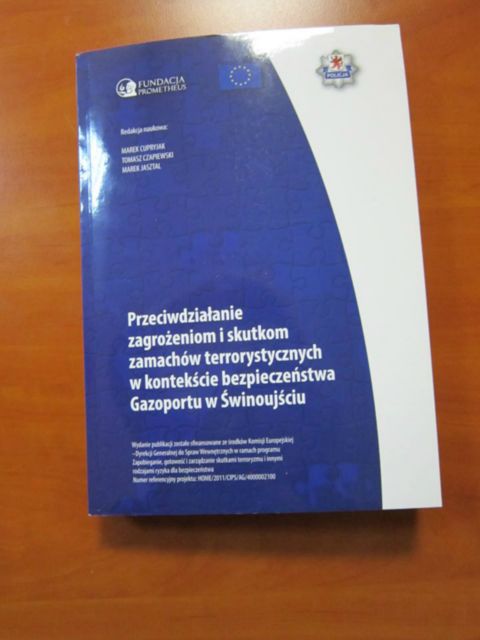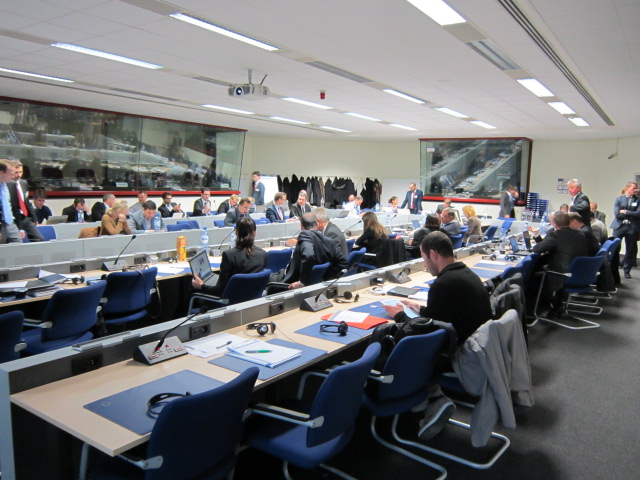EU Strategies
Strategy for Baltic Sea Region – nine countries, one region.
The project concentrates not only on developing mechanisms assuring security of the LNG Terminal – it has definitely broader context. The project is part of strategy for Baltic Sea basin.
The greater part of 8000 km of Baltic coast lies in eight EU countries, each of which has its own priorities and needs, own economical issues and political problems. Around Baltic Sea, which is kind of “sea highway”, live app. 100 million people.
European strategy for the Baltic Sea region shows a new way of cooperation in EU. Regions in eight EU countries – inhabited by 100 million people – plan, set priorities and implement actions, being sure that others work in accordance with the same methodology, which enables the execution of common goals. As a result of such approach it would be possible to assure proper protection of environment and optimum economic and social development of Baltic Sea Region.
Four main points of the strategy are to cause, that this part of Europe will achieve balanced environmental protection, be wealthy, accessible, attractive and safe.
Due to the length of external boarders the region needs coherent, transnational solutions in order to eliminate human trafficking and drugs and weapon smuggling. It would be advisable to create a system of exchanging information between boarder guards, encompassing cooperation within maritime law execution. The authors of the action plan which is a part of the strategy propose different methods for coordinating the fight against crime through integration of existing organizations and promotion of cooperation between them. Common activities would encompass: law execution, mobile scout patrols, investigation teams, scout teams, common usage of equipment by forces and broader cooperation within the fields of development, purchasing, implementation and usage of technology.
For the purpose of risk management aiming at Baltic Sea security it was spent 697 million euro.
The execution of the project by Provincial Police Headquarters in Szczecin is in accordance with the Baltic Sea Region Strategy and will contribute to achieving goals of the Strategy.
European Programme for Critical Infrastructure Protection
Implementation of task by the Provincial Police Headquarters in Szczecin is coherent with the European plans for crisis management.
In December 2005 Council for Justice and Home Affairs requested the Commission to prepare a legislative proposal referring to European Programme for Critical Infrastructure Protection (EPCIP). Therefore, the Commission has adopted this message and proposal referring to the Directive on the identification and designation of European critical infrastructure in order to improve its protection.
The Programme is designed to protect against the risks, not only associated with the terrorists but also with the criminal activities, natural disasters and other causes of catastrophes, based on the concept of comprehensive security. The global objective of the EPCIP is to increase the critical infrastructure security in the EU. This will be achieved by introducing adequate European legislations.
EPCIP regulatory framework covers:
- procedures for the identification and designation of European Critical Infrastructure and common rules for needs assessment in the area of increasing the security of such infrastructure. This will be adopted in form of a directive,
- measures designed to facilitate the EPCIP implementation process, including the action plan for EPCIP, the critical infrastructure warming information network (CIWIN), the critical infrastructure protection expert groups (CIP) on EU level, information exchange on CIP process and identification and analysis of interdependence,
- the support for EU Member States in the field of national critical infrastructure (NCI) for the use of each EU Member State and the emergency plans, the external dimension,
- associated funds, in particular a specific EU programme "Prevention, Preparedness and Consequence Management of Terrorism and Other Security-Related Risks" 2007-2013” which will provide funding opportunities for CIP related activities.
European Security Strategy
In 2005 the European Council adopted a document named "Strategy for Combating Radicalisation and Recruitment to Terrorism". The most important areas of cooperation development in justice and internal affairs among UE and with the third countries determine: EU Internal Security Strategy: Towards a European Security Model, Communication from the Commission to the European Parliament and the Council: The EU Internal Security Strategy in Action: Five steps towards a more secure Europe – both documents were formed in 2010. The Stockholm Programme was also created for the years 2010 – 2014 with the aim to facilitate coordinated activities police and other services throughout the EU
The basis of the EU counterterrorism policy is effective coordinated activity of Member States. In this context EU conducts an intensive dialogue with the third countries and regional organizations promoting adopted by UN documents relating to fight against terrorism.
Planned project activities fit the abovementioned strategic document.



